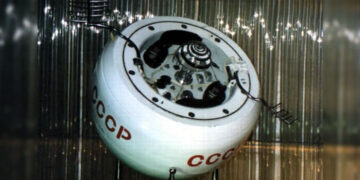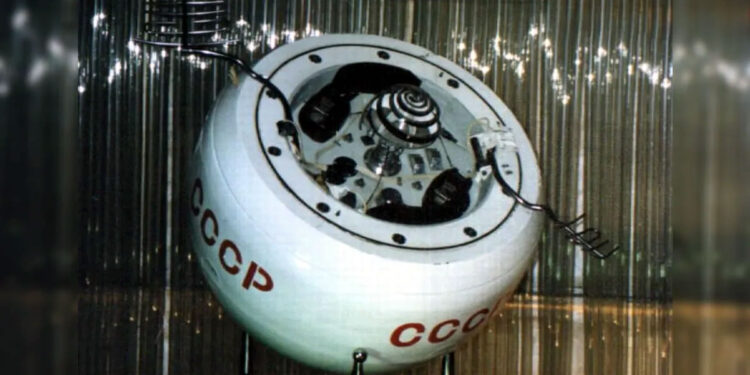A wayward relic of the Cold War space race is about to make an unplanned homecoming. Kosmos 482, a failed Soviet Venus lander that has been stranded in Earth orbit since 1972, is predicted to reenter the atmosphere this weekend in what could become one of the most dramatic uncontrolled spacecraft descents in decades.
Unlike typical space debris that burns up during reentry, this 1.2 meter probe was engineered to withstand the brutal conditions of Venus where temperatures reach 460 degrees Celsius. Satellite tracker Marco Langbroek warns that the 495 kilogram spacecraft may survive its return to Earth intact and could hit the surface at 240 kilometers per hour, carrying kinetic energy comparable to a medium sized meteorite.
The parachute system almost certainly will not function after 53 years with dead batteries, Langbroek noted, suggesting that any impact would be unsoftened. The lander’s sturdy titanium hull, originally designed to endure Venusian pressures 90 times greater than Earth’s, makes it unusually resilient for reentry.
Kosmos 482 was part of the USSR’s ambitious Venera program and launched on March 31, 1972, destined for Venus. But its upper stage malfunctioned and stranded the probe in an elliptical Earth orbit ranging between 200 and 10,000 kilometers altitude. Atmospheric drag has gradually decayed its orbit over five decades and current projections suggest reentry around May 10 with a 21 hour margin of error.
Although the 52 degree orbital inclination means the craft could come down anywhere between London and the Falkland Islands, oceans cover 70 percent of the potential impact zone. Space agencies emphasize that the risk to populated areas is extremely low and note that the event poses less danger than typical rocket body reentries that scatter debris.
Astronomers around the world are tracking the probe’s final orbits, hoping to capture what could be a rare spectacle. A Soviet era space artifact is making its fiery return after half a century in orbital exile. The event serves as a reminder of the risks and triumphs of early space exploration, with Kosmos 482 finally completing its journey, just not to the planet it was originally meant to study.




































